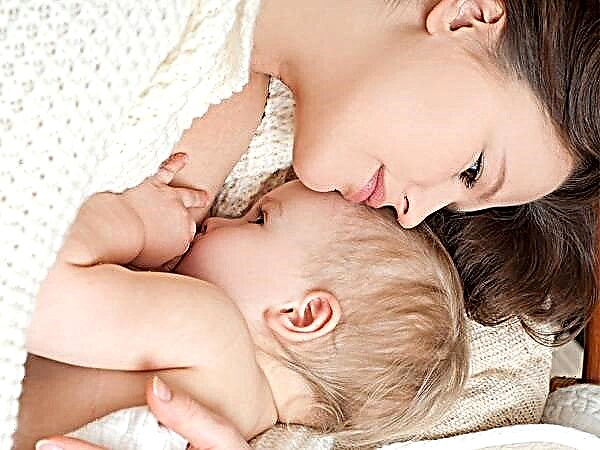Kindergarten has long ceased to be an institution, the main duty of which was to look after children "from morning to evening." Currently, the kindergarten has changed a lot and continues to improve. Parents can be sure that in a modern kindergarten their children will not only be looked after, but the kids will also receive the necessary medical care, quality nutrition, proper education and aesthetic development. In kindergartens, modern training programs, new equipment are introduced, and increased requirements are imposed on the personnel, in accordance with modern conditions.

On the other hand, the parents have also changed. Most modern parents want to know in detail how their children spend time in kindergartens, what they are fed, what and how they are taught, how they are brought up. Parents do not hesitate to ask teachers and other kindergarten staff a variety of questions, make all sorts of demands regarding their own children. They may openly express dissatisfaction if they do not understand or like something. Let's talk in more detail about 5 situations in kindergartens that most often cause misunderstanding and even irritation in parents.
Of course, most kindergartens, keeping up with the times and taking into account the high expectations of parents, have greatly changed. Changes for the better have also taken place in training programs, and equipment of groups, and in the selection of educational personnel. However, misunderstandings and even conflicts between parents and teachers still arise. The main challenge is learning how to compromise and express yourself in a friendly way. These skills need to be developed, because if we didn’t like a beauty salon, we can go to another, but changing the kindergarten is more difficult: the child gets used to the place, to the teachers, he has friends among classmates. Let's look at the situations that annoy parents most often and think together how you can iron out the rough edges.
1. The same uniform for physical education for all children
This is a very common situation. The teacher informs mom or dad that they must bring a sports uniform to the kindergarten for physical education. Moreover, the form must be the same as that of other children. Many modern parents do not understand such requirements, and consider them remnants of the Soviet era. “Why should my child be dressed like others? - parents begin to be indignant. "What's the point here?"
Meanwhile, if you delve into and understand, there is still a sense in such requirements. Most kindergartens have their own established procedures and rules, including in relation to the dress code of children. Many professional educators believe that the same dress code disciplines children and contributes to the fact that they begin to feel like a united and cohesive team. Uniformity in clothes develops in the child a sense of collectivism, which will be very useful to him in later life.

You should not be indignant if parents are required to bring white T-shirts and black panties for gymnastics, and ballet slippers, special leotards and skirts for girls or leotards for boys to dance classes. Such requirements primarily indicate the qualifications of kindergarten teachers and their professional attitude to their duties. Their requests should not be neglected. It is much wiser to accept the rules of the kindergarten in which your child is located, and thus demonstrate your own respect for both the kindergarten itself and the specialists who are raising your child. By looking at you and your behavior, your child will learn the basics of respecting other people.
And even wiser in this situation is to help the kindergarten workers. Clothes for your baby need to be sized, they should be easy to put on and just as easy to take off. We must try to teach the child to remember in which locker his clothes are, what exactly is intended for physical education, and what is for dancing, and in what sequence he should put them on and off. All this will help the teacher to cope with his duties easier.
2. The child at the holiday was given the wrong role that he wanted
Children are very fond of all kinds of holidays. Most kindergartens take into account this feature of child psychology, and try as often as possible to arrange all kinds of costumed performances with the distribution of roles among the pupils. It happens that some kid does not like the role that he was offered. He wanted to be a musketeer in the play, and he was offered the role of a pirate. This upset the child, he shared his grief with his parents, and the parents began to make claims to the educators, why they did not take into account the wishes of their son or daughter.
You need to try to understand why the teacher acted in this way, and gave your baby the role of a pirate, not a musketeer. Preparing for a holiday in kindergarten is a long and rather complicated matter: children have to explain a lot and carry out many rehearsals. Usually, the performers of this or that role are chosen not only the most talented, but also those who visit the kindergarten every day and constantly participate in rehearsals. Otherwise, at the most crucial moment due to the illness of the "musketeer" or "pirate", the performance may break down.
[sc name = ”rsa”]
Parents should not be irritated in this case. On the contrary, it would be better to talk with the teacher and explain to him that your child wants to play this particular role, and not some other. If possible, then you need to assign him to the role that he likes best. If this is not possible, then you need to agree with the teacher on how best to calm and comfort the baby. It will be correct in the next performance to give the child exactly the role that he himself chooses.
3. The parent committee demands to donate money for gifts to kindergarten workers
In many kindergartens, such a public body as the parent committee has long been abolished. Other kindergartens believe that parental committees, on the contrary, are necessary. It is they who usually decide the issue of collecting money from parents for gifts to educators and other kindergarten workers. This often leads to the fact that many parents begin to resent such an initiative of the parent committee, calling it "levies".
In part, such indignation is justified. Many modern parents believe that they themselves have the right to decide who, what and when to give and whether to give at all. This is a legal parental right. If you do not want to donate money, it is better to tell the parent committee about this in advance - at the beginning of the year. Most likely, after your application, you will no longer be pestered with requests to donate money "for gifts."
4. The caregiver complains about your child every day
It is clear that communication between parents and kindergarten educators is indispensable. Each kindergarten has developed its own form of such communication. In some kindergartens, these are periodic parental meetings, someone communicates in the old fashioned way, talking directly to the teacher, someone has an established communication system in messengers. It often happens that face-to-face conversations between caregivers and parents irritate the parents.
Sometimes the parent gets annoyed because the teacher talks in too much detail about everything that the child did during the day, being in kindergarten. At the same time, she mainly focuses on the fact that the baby dabbled, did not listen to the teacher, did not eat well, did not want to sleep, and so on, but does not say anything positive about the child. It also happens vice versa. In a conversation with a teacher, a parent cannot hear a single detailed phrase, her comments are dry and superficial, from which it is absolutely impossible to find out how the child behaved during the day, how he felt and what he needed.

[sc name = ”ads”]
People are different. Some - have the ability to talk about everything logically, in detail and at the same time not getting hung up on insignificant trifles, others - do not have such abilities. It is very important for parents to build relationships with kindergarten staff. If the teacher is overly talkative and tends to dwell on the most insignificant offenses of your child, you can try to change the topic of the conversation and ask what good your child has done during this time. If, as they say, “you cannot get a word out of the teacher,” then in this case it is useful to ask her clarifying questions. But if neither one nor the other helps, then it makes sense to apply with claims to the administration of the kindergarten.
5. The child is on sick leave, and in the kindergarten they require that the parents report three days in advance when the baby will recover and will attend the kindergarten
"How do I know when exactly my child will be discharged?" - parents ask a reasonable question. Indeed, often they may not know this, and for this reason they do not warn the administration of the kindergarten. Of course, you can simply dismiss the mentioned requirement of the administration and bring the child to the kindergarten without any prior notice.
In this case, you can prepare a formulaic reply for the educators ("I don't know what the doctor will tell us today. This time, unfortunately, we do not have the opportunity to warn you in advance") and forget about it once and for all.
However, it should be understood that the kindergarten administration is not asking for this out of their own curiosity. It is necessary for her to make such a request to her parents. Taking into account the number of children in groups, teachers prepare for classes, select visual aids, write plans, etc. The teachers, in turn, knowing how many children will be in the group, order the required number of servings of food. If you know exactly when your child will recover and will start attending kindergarten again, then you need to notify the kindergarten administration about this.
Of course, no one bothers parents, in case of constant conflicts with the administration of the kindergarten, to change one kindergarten for another. However, one must understand that this is an extreme case. Your child gets used to the kindergarten you take him to and to your caregivers, he has friends and interests. How easy it will be for a baby to get used to a different place and other people is unknown. It is necessary to avoid misunderstandings and, moreover, conflicts between parents and kindergarten workers, seek compromises and a common language, remembering that the main thing in this situation is the interests of your child.
- What a child should be able to do before kindergarten - 4 useful skills
- Home education as an alternative to kindergarten: advantages and disadvantages
- Memo to parents: 20 reasons why a child does not eat in kindergarten, and what to do about it (part 1)
- Parents' mistakes that make the child reluctant to go to kindergarten
- Adapting a child to kindergarten: what parents need to know



